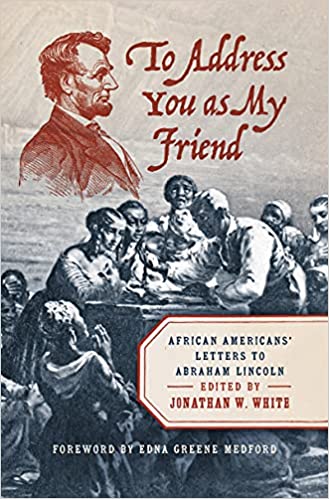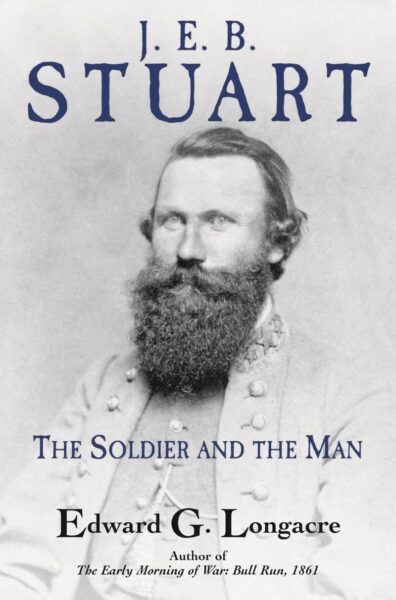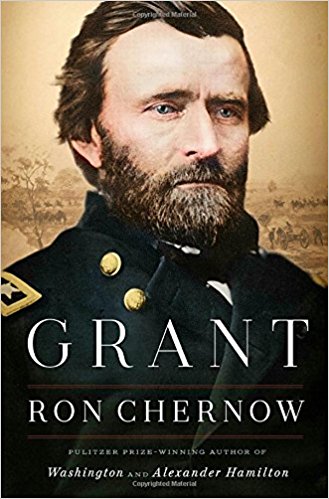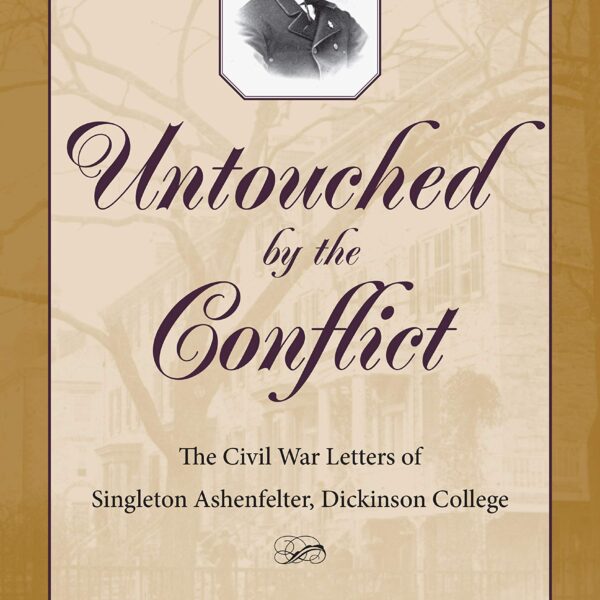Abraham Lincoln and Horace Greeley by Gregory A. Borchard. Southern Illinois University Press, 2011. Cloth, ISBN: 0809330458. $19.95.
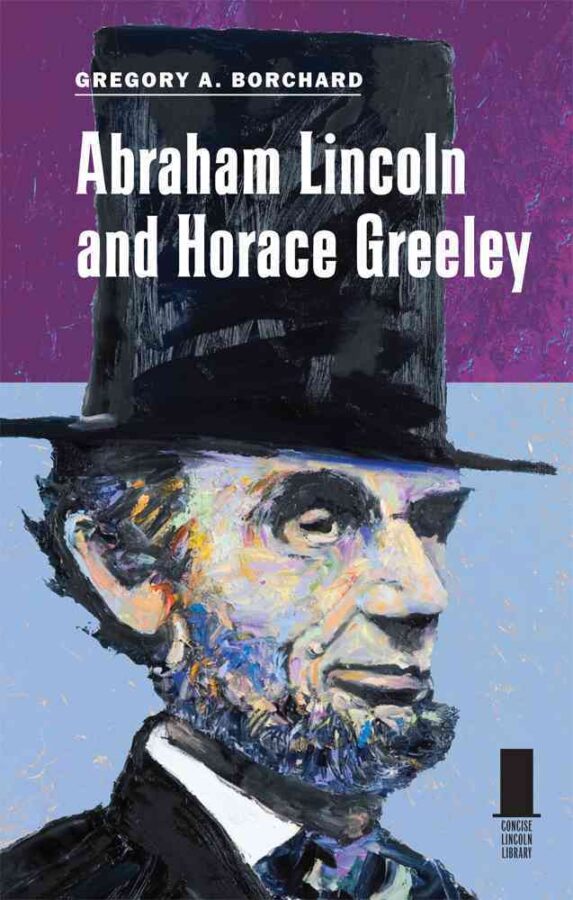 Abraham Lincoln and Horace Greeley is an installment in Southern Illinois University’s Concise Lincoln Library series, which offers brief topical studies of the life and legacy of the sixteenth president by a variety of authors. The series is designed to allow readers “to quickly achieve basic knowledge of a Lincoln-related topic” and to promote fresh investigations of a variety of subjects (141). One might add that this series of short studies (most are around 100 pages) also is designed to exploit the robust market for Lincoln books by disaggregating the life of the sixteenth president into a variety of topical volumes. In this volume, Borchard, a professor of mass communication and journalism, profiles what he describes as the “dialectical relationship” between these “political and intellectual allies” (ix, 111). Together, the reform-minded editor and the pragmatic politician gave voice to a progressive nationalism that revolutionized the nation.
Abraham Lincoln and Horace Greeley is an installment in Southern Illinois University’s Concise Lincoln Library series, which offers brief topical studies of the life and legacy of the sixteenth president by a variety of authors. The series is designed to allow readers “to quickly achieve basic knowledge of a Lincoln-related topic” and to promote fresh investigations of a variety of subjects (141). One might add that this series of short studies (most are around 100 pages) also is designed to exploit the robust market for Lincoln books by disaggregating the life of the sixteenth president into a variety of topical volumes. In this volume, Borchard, a professor of mass communication and journalism, profiles what he describes as the “dialectical relationship” between these “political and intellectual allies” (ix, 111). Together, the reform-minded editor and the pragmatic politician gave voice to a progressive nationalism that revolutionized the nation.
Both Lincoln and Greeley conceived of themselves as self-made men, devotees of Henry Clay, whose political philosophy promoted individual uplift through national infrastructure development, expanded economic opportunity, and moral reform. Both rose from humble circumstances to successful business careers. As the crusading editor of The New York Tribune, perhaps the most widely read newspaper in the country, Greeley was a famed (some might say notorious) advocate of a variety of social and moral reforms. Lincoln labored in relative obscurity for much of his life, but was a successful corporate lawyer and politician in the growing West. Yet, Borchard perceptively notes that there were limits to Greeley and Lincoln’s self-making. He argues that the Illinoisan’s growing political acumen and the New Yorker’s “visionary idealism” together guided a young Republican Party to national prominence and lifted Lincoln to the presidency, imparting to both men a measure of political power and influence they had not previously enjoyed. Together, the author also suggests, Greeley and Lincoln successfully pursued the progressive policies at the heart of their mutual political philosophy, ultimately including the destruction of slavery (though the editor ferociously criticized Lincoln’s slow march toward that goal).
While this book amply demonstrates the political ideals that Greeley and Lincoln and shared, it is not quite as convincing in portraying the two men as firm political allies. True, they both served in the same parties and largely sought the same goals, but their personal political relationship was fraught with incessant, debilitating conflict. Even when they acted in concert, it is difficult to determine the utility of Greeley’s support for Lincoln. For instance, the author argues that the editor’s participation in the 1860 Republican convention in Chicago gave Lincoln the “necessary boost” to win the party’s presidential nomination (62). Yet, despite focusing on the editor’s shadowy role in Lincoln’s nomination, Borchard actually shows that Lincoln’s triumph owed little to Greeley’s efforts and almost everything to the superior organization and activity of his Illinois lieutenants. Likewise, Thurlow Weed, who managed Seward’s political career and was devastated by his defeat at the convention, attributed Lincoln’s surprise selection to David Davis and Leonard Swett’s successful lobbying of various state delegations long before the convention itself, not to Greeley’s machinations.1 Despite his support for Lincoln’s nomination and election, Greeley proved an inconstant ally. Rather, he was a consistent and fierce critic of the administration during the Civil War, even asserting that the president should be dumped from the Republican ticket in 1864.
Borchard explains Greeley’s idiosyncratic behavior by casting him as a spokesperson for the masses, who dutifully sought to reflect, and was driven to shape, public opinion through the pages of the Tribune. It’s clear that Lincoln respected the popularity of the Tribune and the stature of its editor, and he labored to manage Greeley’s coverage of his administration. Yet, we should not overestimate Greeley’s political power. As the author shows, Lincoln refused to be rushed into declaring abolition a war goal and would not be cowed into seeking peace with the Confederacy, two goals that the editor sought at different points in the Civil War. Moreover, while Greeley sought to organize an independent political convention to nominate a new presidential candidate for the 1864 election, his rival editor, Henry Raymond of The New York Times, was raising the money and coordinating the campaign that successfully re-nominated and re-elected Lincoln. In an era when partisan editors often played a large role in building and maintaining the organizational structures that sustained the major parties, Greeley wielded little such power within the Republican Party. Borchard’s Greeley is an undeniable political celebrity whose views enjoyed wide circulation, but not an especially effective political operative, his selection as the presidential nominee of the doomed Liberal Republican Party in 1872 notwithstanding.
Still, Greeley’s fame and his dogged crusade for progressive reforms resonated with many Americans in the mid-nineteenth century, and Borchard convincingly argues that the editor arguably did more than any other man in his field to influence political opinion throughout the nation. Indeed, many Americans eulogized the editor and the assassinated president together as having forged a new nation on the foundation of their shared political ideals in the wake of the Civil War. This book is most effective in demonstrating the shared political philosophy that united and animated the editor and the president, though its honest chronicling of the political conflict that defined much of their relationship casts doubt that their intellectual kinship translated into a true political alliance. For Lincoln enthusiasts and scholars of the nineteenth century press, Borchard’s book restores Greeley to historical prominence while providing a colorful narrative of the contentious relationship between the president and the popular, political media in this period.
Matthew Isham is the Managing Director of the Richards Civil War Era Center at Penn State University and the Managing Editor of the Journal of the Civil War Era.
1 Thurlow Weed, Life of Thurlow Weed, Including His Autobiography and a Memoir, Harriet Weed, ed. (Boston: Houghton Mifflin, 1884), 602.

